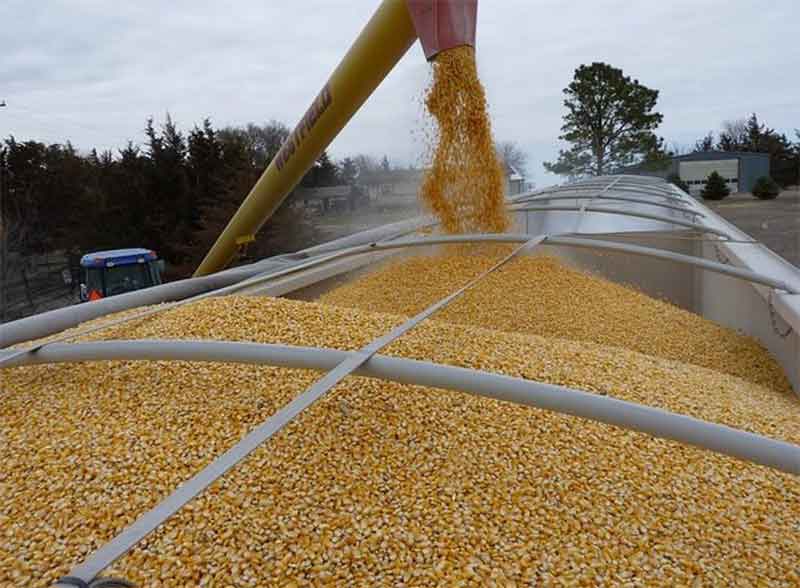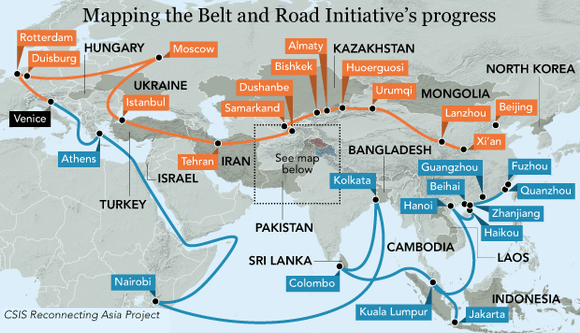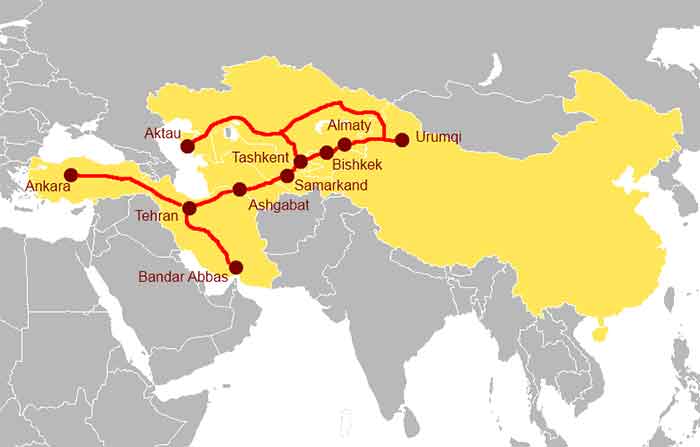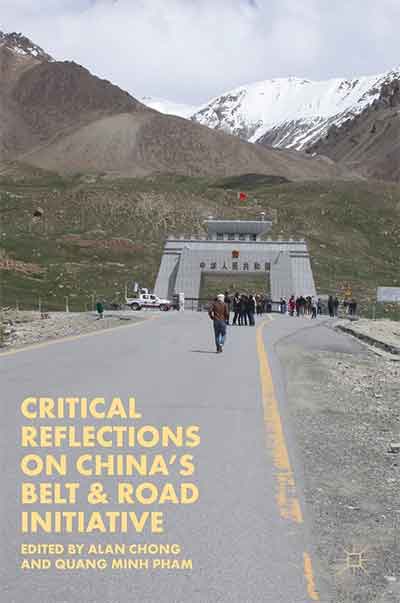
There has been a lot of debate about the impacts of the highly ambitious development interventions and projects of China in other developing countries. In this context a recent analysis by GRAIN, a highly respected Europe-based organization whose studies on food and farming systems in particular have been widely appreciated, deserves serious attention, as various reports of GRAIN have been recognized for their concerns and commitments regarding equality, justice and environment protection, particularly in the context of small farmer communities. This report of GRAIN, titled ‘Expanding Markets, Undermining Food Sovereignty—10 Years of Belt and Road’, released towards the end of January 2024, is important also in the context of the debate on China’s Belt and Road Initiative (BRI).
This study tells us that China’s food trade with BRI partners surged by 162 per cent in the last decade, reaching USD 76.10 billion. Since 2018, China has been the leading country providing investments internationally to agriculture, averaging USD 1.71 billion annually. While China has made significant strides in securing control over its overseas food supply through BRI investments, its dependence on food imports has also grown.
In addition, this study states, there is the expanding involvement of Chinese corporations through BRI across the global food chain, from seeds to processed foods. In Africa, the BRI approach, referred to as “agriculture for profit”, has operated through massive private or state-owned companies and has coupled the financing of transportation infrastructure projects (like rail and ports) with projects to industrialise African agriculture through hybrid seeds, machinery, logistics, food storage and processing facilities provided by Chinese companies.
The GRAIN report informs us that through its massive communication network, the BRI is promoting agriculture capitalisation in Africa as a means to eradicate poverty. China’s agricultural intentions in Africa are mainly concerned with its soaring domestic meat consumption and support of its factory farming of poultry and pigs, which has created a huge demand for imported soybeans and maize for animal feed.
Despite earlier failed attempts, at the China-Africa Leaders’ Roundtable Dialogue in Johannesburg in August 2023, President Xi Jinping emphasised that China would continue to try and develop large-scale crop farming on the continent. He also stressed that importance would be given to build up seed production capacity and seed markets for its corporations.
China’s largest seed company, Yuan Longping High-Tech Agriculture, a subsidiary of the state-owned conglomerate CITIC, has been tasked with leading this effort in Africa. In Tanzania, the company is pursuing a major effort to develop soybean production for export.
In 2022, the GRAIN report tells us, the Tanzanian government provided it with 53,000 hectares for a large-scale farming operation in the Chunya District of the Mbeya Region and in 2023 it fast-tracked the approval of the company’s seed varieties. This company has also expanded in South America in a big way emerging as one of the biggest seed companies internationally. What is more its GM ( genetically modified) maize varieties have been approved for use within China. Longping High-Tech and COFCO are also actively developing exports of soybeans in the West African country of Benin, which along with Tanzania and Ethiopia, was recently singled out by China for the development of soybean exports. China and Benin signed a protocol on the export of soybeans in September 2019 and, by 2022, Benin’s annual exports to China exceeded 210,000 tonnes.
Benin is also a target for maize exports. While maize is a staple food in Benin and is grown widely across the country, it is almost entirely consumed locally. Longping High-tech is trying to change this and develop a surplus for export through a programme supported by China’s Ministry of Commerce, that is training farmers in growing its high-yield hybrid maize varieties. Other crops for export to China, beyond maize and soybeans, are also being supported in Africa through the BRI.
Coming to the fisheries sector, the GRAIN report informs us that China’s rapidly expanding fleet of deep-sea trawlers as a techno-fix to deal with the decline in global fish stocks is actually playing a major role in accelerating the depletion. “Having badly overfished their own coastal waters, Chinese companies are sending their giant trawlers further and further overseas, bringing them into increasing conflict with coastal communities who depend on these same waters for their livelihoods and food needs.”
Under current BRI projects, the GRAIN report says Chinese fishing companies are encouraged to leverage BRI investments in harbour infrastructure to gain more fishing access in foreign countries, for instance Somalia, at the expense of local fishing communities and the sustainability of local marine resources.
Somalia has the longest coastline of any African nation. But the local small-scale fishing communities that live along the coast are already suffering from overfishing by foreign vessels, including many Chinese-owned vessels. Chinese fishing companies started moving into Somali waters in a big way after December 2018, when the Somali government issued renewable annual fishing licenses to 31 vessels that are part of the China Overseas Fisheries Association. Although the licenses only allowed Chinese vessels to operate 24 nautical miles away from Somalia’s coast, the local fishing communities say that their government is not able to stop vessels from encroaching this boundary. A new deal with Chaoliang Group under the BRI framework will only worsen the situation.
In Pakistan, the GRAIN report says, a major project of the China-Pakistan Economic Corridor (CPEC), which is part of the BRI, is the development of a massive deep-sea port in the fishing village of Gwadar in Balochistan that will connect by rail and road to China’s Xinjiang region. The project, which gives control of the port to Chinese companies, has also brought an influx of Chinese fishing trawlers to the area. One of the Chinese companies now fishing the waters off of the Gwadar coast is Fujian Hengli Fishery, which is known for its illegal, unregulated and unreported fishing in West Africa, with evidence of various infringements including illegal nets, shark finning and fishing without licences.
According to this GRAIN report, “The presence of Fujian Hengli and other Chinese fishing companies is already having major impacts on local fishing communities, who say the giant vessels are wiping out their fish stocks, out-competing their local fishing boats and destroying their livelihoods.” In December 2022, the Haq Do Tehreek (Gwadar Rights Movement) led a two-month protest to demand an end to deep-sea fish trawling by Chinese vessels and, together with thousands of people from local small fishing communities, staged a blockade of the port. Despite the strong community resistance, the Chinese companies are eager to fish in Pakistan’s waters as they can sell the catch back home duty-free.
At the 2023 BRI Forum, Beijing indicated that it was looking to e-commerce as the vehicle that bring food from BRI nations to the bowls of Chinese consumers. In the context of a recent agreement with Cambodia, the GRAIN study notes that
so far the visible beneficiaries are major Chinese companies and powerful Cambodian businessmen with large agricultural holdings.
The GRAIN report concludes, “As evidenced by China’s plans in agriculture, fisheries and e-commerce in Africa and Asia, it is hard to find anything “green” or small-scale about the BRI. On the contrary, it is only leading to further grabbing of limited natural resources for the profit of China’s corporations, while millions of peasants, fisher-folks and others are left under the thumb of its agribusiness and digital giants.
“Agriculture for profit” is not only an economic gamble, but also a social and environmental one – for China and its BRI partners.”
Bharat Dogra is Honorary Convener, Campaign to Save Earth Now. His recent books include Planet in Peril, Protecting Earth for Children, Man over Machine and India’s Quest for Sustainable Farming and Healthy Food.
















































